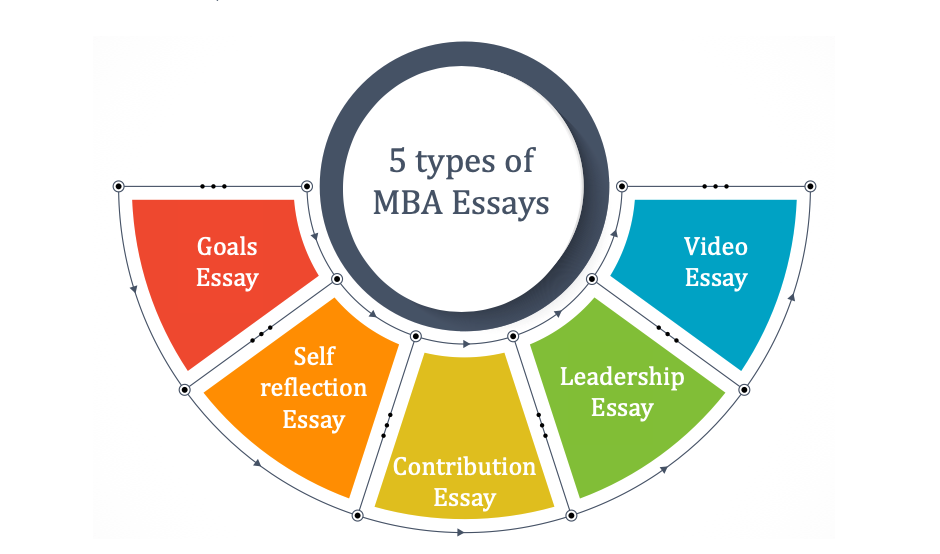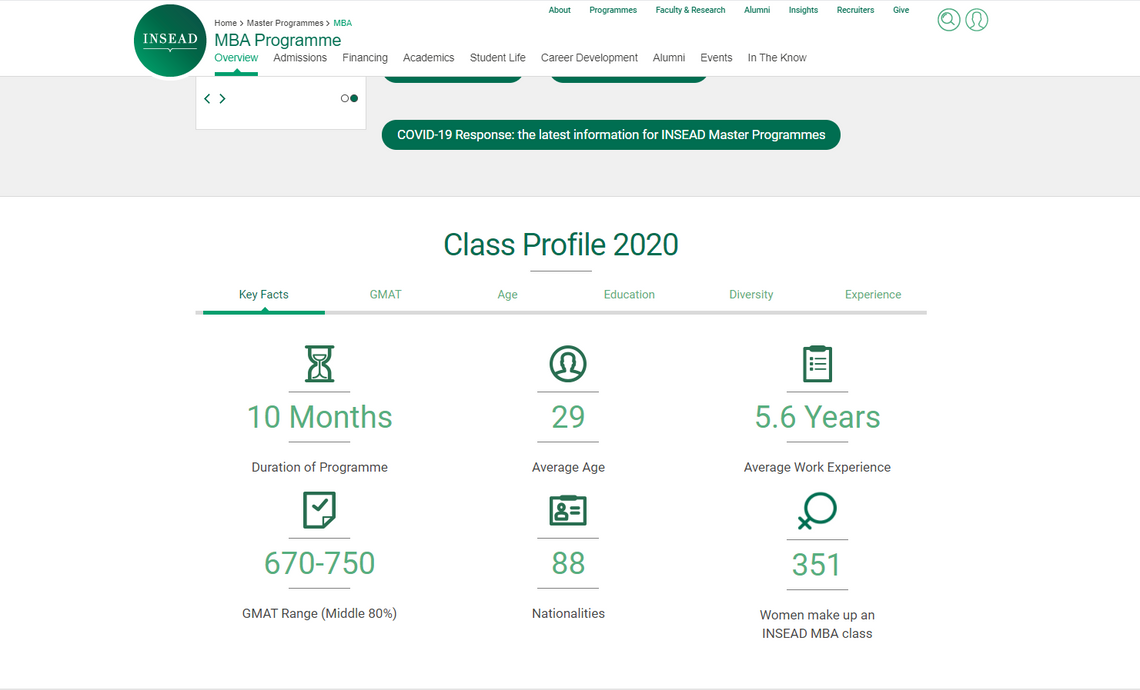
Apply to a foreign university with confidence
- Properly fulfilled documents
- Perfect motivation letter
- Support from a personal mentor
- Offers from several universities
Getting an MBA is an important step in the career of any future entrepreneur or top manager. In this article, we will talk about what an MBA is, where the best business schools are located, are there inexpensive options and what you need to do to enroll.
Free consultation




Getting an MBA is an important step in the career of any future entrepreneur or top manager. In this article, we will talk about what an MBA is, where the best business schools are located, are there inexpensive options and what you need to do to enroll.
MBA — Master of Business Administration — is an academic degree in business management. MBA is one of the varieties of Master's degree and is equal to Master of Science (MSc), Arts (MA) and other second-level degrees. The main feature of MBA is its applied focus. The teaching process is based on case study methods and revolves around practical problem-solving. This brings students as close as possible to reality.
MBA programs have different specializations. The most popular of them:
There are also specializations in specific market sectors: fashion industry, pharmaceuticals, computers and information technology, and so on.
EMBA is a subtype of MBA programs, created specifically for senior managers. Only people with experience in business management can apply for it. As a rule, these are entrepreneurs, top managers, deputy directors, heads of companies, and so on. For this reason, EMBA programs offer training in short modules or only on weekends. Below is a table with a generalized comparison of two programs. The details depend on each specific business school.
| Characteristics | MBA | EMBA |
|---|---|---|
| Requirements |
|
|
| Exams | ||
| Duration | 1-2 years | 6-12 months |
| Type of study | Full-time on-campus | Studies in modules — on weekends or in evenings |
| Average cost/year | 35,000 USD | 80,000 USD |
The MBA program is a must-have for those working in business. It provides new knowledge and structures the existing, helps to develop strategic thinking and leadership qualities. You will learn how to evaluate the market, set the right goals and choose the best way to achieve them. And through working on joint projects, you will improve your communication skills and make useful contacts. The MBA program is suitable for those who aspire to:
Most MBA graduates evaluate the learning experience positively. 95% note the importance of the course for their personal growth, 91% for their career and 79% for their finances[2]. MBA is a great investment in your future, but it's not cheap. Consider the price of the program itself and the cost of living. You also need to understand that an MBA degree does not guarantee an instant salary increase. It all depends on you and how you use the knowledge gained during the course.
| # | University | Country | City | Price | Term | Exams | Min. work experience | Cost of a dormitory |
| 1 | Stanford Graduate School of Business | USA | Stanford | 74,706 USD/year | 24 months. |
| 4 years | 26,700 USD |
| 2 | Wharton University of Pennsylvania | USA | Philadelphia | 83,230 USD/year | 24 months. |
| 5 years | 21,600 USD |
| 3 | Sloan school MIT | USA | Cambridge | 77,168 USD/year | 24 months. |
| 5 years | 20,700 USD |
| 4 | Harvard Business School | USA | Cambridge | 73,440 USD/year | 24 months. |
| 2 years | 28,260 USD |
| 5 | HEC Paris | France | Paris | 85,879 USD | 16 months. |
| 2 years | 14,916 USD |
| 6 | INSEAD | France | Paris | 100,569 USD | 10 months. |
| 2 years | 14,690 USD |
| 7 | London Business School | UK | London | 122,788 USD | 15-21 months. |
| 2 years | 13,241 USD |
| 8 | Columbia Business School | USA | New York | 77,376 USD/year | 24 months. |
| 5 years | 21,375 USD |
| 9 | IE Business School | Spain | Madrid | 81,585 USD | 12 months. |
| 3 years | 12,204 USD |
| 10 | Haas School of Business | USA | Berkeley | 68,444 USD/year | 21 months. |
| 5 years | 25,658 USD |
| 11 | SDA Bocconi | Italy | Milan | 66,669 USD | 12 months. |
| 3 years | 8,475 USD |
| 12 | Said Business School Oxford University | UK | Oxford | 83,416 USD | 12 months. |
| 2 years | 9,268 USD |
| 13 | LSE | UK | London | 43,512 USD/year | 17 months. |
| 3 years | 17,213 USD |
| 14 | Copenhagen Business School | Denmark | Copenhagen | 49,934 USD | 12 months. |
| 3 years | 8,776 USD |

Usually, Master's programs become an extension of your undergraduate studies. In some European countries, for example, Germany or France, it is obligatory that the Master’s degree be in the same field as the Bachelor’s. The advantage of MBA is that it is available to everyone, regardless of previous education. You can even enroll after studying design. The main thing is to meet the requirements of the program and collect the necessary documents.
MBA is a Master's degree, so you must already have a Bachelor's degree to apply for it. In most cases, the specialization of previous education is not important. Although for people with specialties other than business, more stringent selection criteria apply. For example, they need to pass GMAT and generally have excellent academic performance. Some schools accept students with no higher education at all. French HEC Paris, for instance, considers 5 years of professional experience as the equivalent of a bachelor's degree.
Experience is required for admission to most MBA programs. Some schools set clear criteria: usually 2-3 years. Others write that they consider all candidates, regardless of professional experience. At the same time, the average work experience among applicants is 5 years.
People go to MBA not so much to learn something new, as to improve. The standard age for students at prestigious business schools is 25-28 years old. This contributes to an effective learning process and networking. Lesser-known universities also accept those who are just starting their careers in business. In this case, the program is built somewhat differently. It includes more theory and basic courses in economics, finance and marketing.
Unlike other Master's programs, during an MBA more attention should be paid to working experience rather than academic achievements. Requirements for resumes vary. Some universities request a regular CV, but some ask candidates to describe their activities in detail. For example, indicate the reasons for periods of unemployment. Some universities provide a sample CV to show what they want to see. Details can be found on their official websites.
Letters of recommendation are needed for all types of Master's programs abroad. However, in the case of an MBA, the letter should not be from previous professors, but from current colleagues and supervisors. For example, Stanford Business School requires a recommendation directly from the head of the company in which the person works. The letter should describe your leadership qualities, management skills, and business potential.
Passing an interview is one of the common conditions for admission to MBA programs. It is conducted face to face or in video format so that the commission can assess the applicant's motivation. Some universities ask you to provide it as a recording, while others will interview you online. The process can also have several stages.
Essays are not required everywhere. If the school wants to see it, they will indicate it in the admission requirements. For example, Stanford asks two questions in advance:
Whatever the assignments, your goal is to show yourself, your interest and potential in the field of management. Although this document is called an essay, it works more like a motivation letter. Explain what an MBA means to you personally and what you plan to achieve.

For admission to the MBA abroad, you will definitely need to pass two international exams:
To find out what an "ideal" business school candidate looks like, visit its official website. There you can often find information about the average age of applicants, their work experience and exam results. These “profiles” provide a rough idea of what will be required to successfully enroll.

It is a fact that MBA is expensive. The average cost of a two-year course is 60,000 USD, and in prestigious business schools — over 100,000 USD. And yet, cheaper programs exist. Affordable countries include France, Germany and Finland. There you will find programs within the range of 10,170 USD/year. But do not forget about the costs of accommodation and other expenses as well. They add significantly to the overall training costs.
Another way to save money is to study online. It is suitable for those who want to learn the basics of business management for themselves. The downside is that such programs rarely issue a diploma, at best — a certificate. But they are definitely cheaper and shorter.
Many business schools provide scholarships for students. But to qualify for them, you need to be a top-notch candidate. What does it mean? The answer depends on the specific institution. For detailed information on financial assistance and the profiles of those who received it, check the school website. In general terms, a potential scholar looks like this:
Remember that a scholarship is always a lottery. So choose a school that you can pay for yourself. View financial aid as a possible nice bonus, but not a 100% guarantee.
Below is a list of low-cost business schools around the world. In them, prices start from 2,260 USD/year.
| University | Country | City | Price/year | Term | Requirements | Min. work experience | Cost of a dormitory |
| KU Leuven | Belgium | Leuven | 4,407 USD | 12 months |
| n/a | 5,424 USD |
| Indian Institute of Technology | India | Kharagpur | 817 USD | 24 months |
| 2 years | 875 USD |
| West Pomeranian Business School | Poland | Szczecin | 2,576 USD | 12 months |
| n/a | 1,582 USD |
| Institute of Economics of the Polish Academy of Sciences | Poland | Warsaw | 5,989 USD | 12 months |
| n/a | 2,825 USD |
| Putra University | Malaysia | Kuala Lumpur | 9,748 USD | 16 months |
| 5 years | 907 USD |
| ESERP Business School | Spain | Madrid | 14,916 USD | 12 months |
| 3 years | 3,955 USD |
| International University of Applied Sciences | Germany | Bonn | 8,017 USD | 12-18 months |
| 1 year | 2,260 USD |

Pre-MBA is a special type of preparatory courses. They are suitable for those who have just graduated from university and do not have the necessary work experience for admission, or people with an education from another field. Pre-MBA programs can include different elements, there is no single standard. Typically, this includes preparation for international exams: GMAT, TOEFL or IELTS. There are also classes in additional disciplines: management, finance, marketing, and so on.
Typically, pre-MBAs are programs from independent institutions. There are preparatory programs at the business schools themselves, but there are few of them. For example, Harvard has an online course, CORe, and the University of San Francisco offers a one-year Pre-MBA followed by a major program. The requirements for admission to them are lower than for MBA programs: IELTS 5.5, and the optionally, GMAT.
What does Pre-MBA give? It helps to prepare for challenging exams, as well as introduce the student to what awaits them in a full MBA program. Taking these courses increases the chances of admission and the subsequent effectiveness of the studies. However, they cost not much less than the MBA themselves. The average price in the USA is 13,400 USD/year, and in England — 13,241 USD/year. Whether it is worth the time or money depends on the circumstances. For experienced managers, these courses will not give anything, but for beginners they can be useful.
USA is the birthplace of MBA. The first program in the world was opened at Dartmouth in 1900. Today, there are over 400 accredited business schools in the United States. Some are affiliated with large universities, others are independent institutions. American MBA programs are quite expensive (like all higher education in the country). Their cost is 1.5 or even 3 times higher than other disciplines. The lowest fees can be found in public universities: for example, at Ball University, one semester of MBA costs 20,000 USD, about the same amount students pay at the University of North Dakota. The best American business schools are located at the most prestigious universities: MIT, Stanford, Princeton, Harvard, and others. The cost of studying might be scary — prices for a year of MBA start at 70,000 USD. But there is also a good side — these universities offer generous scholarships that potentially cover 15-80% of the costs.

The cost of MBA programs in European universities is much more appealing than in American ones. The exceptions are Denmark, the Netherlands, Sweden and the UK — there the cost of education is comparable to the USA and Australia.
MBA prices in Europe range from 5,650 USD at public universities to 100,569 USD at prestigious business schools. Such large sums cover not just the training. For example, at INSEAD, the cost of the program also includes educational materials, access to the library, access to the sports complex, insurance and more. In European universities, MBA can be completed in a year or a year and a half in a special part-time program. This means that the cost of living in another country will be less. In addition to the low cost and shorter course duration, European business schools have another advantage. Many of them (INSEAD, Bocconi) are recognized as leading research centers. Getting a degree there will not only be cheap, but also very prestigious.
Their requirements for applicants are also lower — recommendations are often excluded from the general package of documents, the expected GPA is lower, sometimes you don't even need to take GMAT. However, this only applies to programs at public universities. Prestigious business schools have the same requirements as American ones.
Business schools in Asia are a budget-friendly and easy way to get an MBA. However, a lot depends on the country and the chosen university. Singapore, Hong Kong, China and Japan offer the most expensive MBA programs. In India, Malaysia and Thailand, they are much cheaper. The cost of the programs there starts from 3,000 USD per year, and the requirements for applicants sometimes include only a Bachelor's degree. Although it is still difficult to enter there because of the language and the general specifics of these countries. And the prices are low only from the European point of view.
People often question the quality of education in such universities. Indeed, not all Asian universities have the best academic staff. However, many local business schools create ambitious and highly competent programs. Plus, some Western employers value work and study experience in developing countries.

There are MBA programs in Russia as well. Prices, like in the rest of the world, are higher than for other specialties. Business administration programs never cost less than 1,197 USD/year. The upside is that most universities do not need GMAT or IELTS. For admission, you need a Bachelor's degree, a CV, and an essay, followed by an interview. Some schools also conduct admission tests in the form of a case study. Among Russian universities, the highest quality MBA programs are offered by:
60+ countries
we work with
$1,000,000 saved
by students through scholarships
6,400 offers
our students got